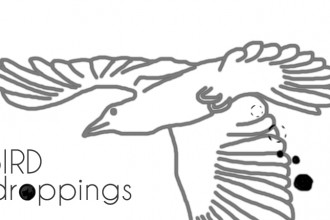There are several psychological trenches when it comes to the concept of freedom, and it is not uncommon to hear people saying: “Of course we should have freedom, but in ‘moderation’â€. This is an Orwellian trip-up along the lines of “All freedom is absolute, but some freedoms are more absolute than othersâ€. Theoretically it makes no sense, but in practice, it is the most reasonable ethical premise available to us.
Negotiating ‘freedom’ is an intense and self-defeating exercise in absolutes. It means pitching up an idealized utopian free-point and then taking an axe to it bit by bit until it becomes ‘acceptable’. Naturally, different societies do this in different ways and this is why as a species, we are nowhere near achieving the freedoms we already allegedly possess. No one can deny the importance of utopias in Philosophy. There can be no progress if one does not place a pinnacle; in some ways, the UDHR is humanity’s standard for wellbeing. Victor Hugo put it brilliantly when he said “Our life dreams the Utopiaâ€, following it with “Our death achieves the Idealâ€. In the negotiation of ‘freedom’, we find ourselves somewhere in the middle of this equation. We need to decide whether we still value the purist ideals of freedom in their absolute form enough to avoid examining the merits of compromising on definition. Can we still afford to want “absolute freedoms of thought, speech, expression, beliefâ€, and do we? Or, like Michael Novak, have we come to the understanding that practice makes premise and “to Know oneself is to disbelieve utopiaâ€? Are ideas and ideals still more important that facts and realisms?
This is a subtle and tenuous dance, the difference of wanting and aspiring toward an absolute freedom and the reality of living it. ‘Freedom’, like ‘democracy’, is an accepted ideal but its absolute form has never functioned in practice, no matter how politically incorrect it is to entertain this particular factoid. None of the absolutes of the four major freedoms posited in the UDHR hold up on closer inspection. The freedom of belief, if defended to its nth degree, would validate human sacrifice and suicide pacts made in lieu of commemorating the Rapture[v]. It also makes for interesting studies in deciding custody cases for children of Mormon parents, where the subject ‘freedom of belief’ cosmically clashes with the 2005 Convention on the Rights of the Child. Not to mention when the question of the child’s own beliefs (or lack thereof) are being addressed, which law takes precedence?
Freedom of expression condones demonstrations by the Ku Klux Klan[vi] as well as films such as ‘Innocence of Muslims’ released to inflame the religious sentiments of Muslims around the world in July 2012. Salman Rushdie even categorized freedom of expression as the “freedom to offend. Without which it would cease to exist.†Similarly ‘freedom of speech’ could potentially legitimize hate speech, racism, homophobia, and let us never forget apostasy and blasphemy. The latter is especially interesting considering that the concept of blasphemy is both legitimized and denounced by Article 18 of the UDHR (if taken without any qualifiers as an inherent ‘freedom’); the same freedom that allows belief in anything allows one to denounce and reject any belief. Kierkegaard said that people demanded freedom of speech as a compensation for the freedom of thought which they seldom used, and he may have had a point. That said, ‘freedom of thought’ is perhaps the most complicated category as it needs to be coupled with one of the three other branches to take effect, but is always the perpetrating force behind belief, expression and speech. Also, freedom of thought rests on freedom of access to information and it is this divide across developed and underdeveloped nations that gives rise to the patronizing but honest sentiment “they just don’t know better†or, biblically put, “Father, forgive them, for they know not what they do.â€[vii] Many may go on to presume that this canon of lost knowledge or disparate knowledge is the premise for the Huntingtonian ‘Clash of Civilizations’. In this cesspool of intense negotiations, which freedom is ethically ranked above another?




